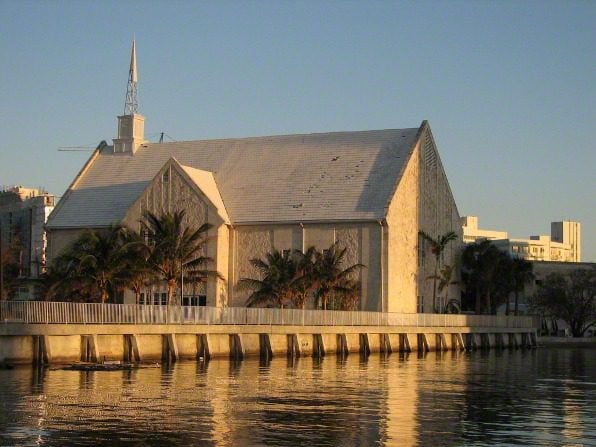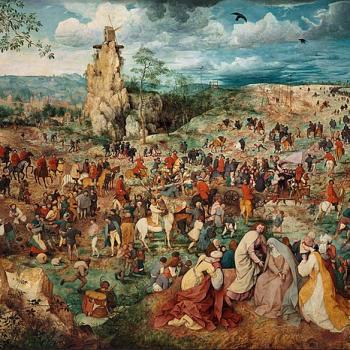
I’ve spent a fair amount of time here sharing notes excerpted from Paul McFate, 52 Good Reasons to Go to Church, Besides the Obvious Ones (Chicago: ACTA Publications, 2004). With the two quotations below, I bring to a conclusion my working through McFate’s very brief (and, sadly, very hard to find) little book. They will help as useful summations:
Does every study on religion turn up positive results?
The answer is no. The overall picture, however, is very positive. For example, one study by E. C. Craigie, D. B. Larson and L. Y. Liu published in the Journal of Family Practice in 1990 [“References to Religion in the Journal of Family Practice: Dimensions and Valence of Spirituality,” Journal of Family Practice 30 (1990): 477-480] looked at fifty-two clinical studies on religion and found that twenty-five were associated with positive implications, thirty were neutral, and nine had negative implications. These clinical studies examined a broad range of sixty-four “religious” variables ranging from traditional prayer and church attendance to simple meditation. Broader interpretations of what constitutes religious activities tended to dilute the results. When the focus of the studies analyzed was narrowed specifically to religious worship, relationship with God, and related social support, the researchers noted that twenty-four of twenty-seven cases were associated with positive outcomes. Once again, going to church shows itself to be a significant factor. (62)
Individually, the studies published in this book are interesting, but certainly they do not constitute proof of anything. Collectively, however, these and dozens of other similar studies constitute a significant body of evidence that going to church is good — good for you, good for your health, good for your marriage, good for your children, good for your community, and good for your country. And the more you attend, the better the results seem to be. What’s more, the good effects may last for generations.
Many from time to time have wondered, “What can I do, as one person, to make this world a better place?” Perhaps we have found one answer: Go to church. (63)
McFate closes his small book with one last reference: D. B. Larson and B. R. Johnson, “Religion: The Forgotten Factor in Cutting Youth Crime and Saving At-Risk Urban Youth,” The Jeremiah Project: An Initiative of the Center for Civic Innovation (1998): Report 98-2.
***












